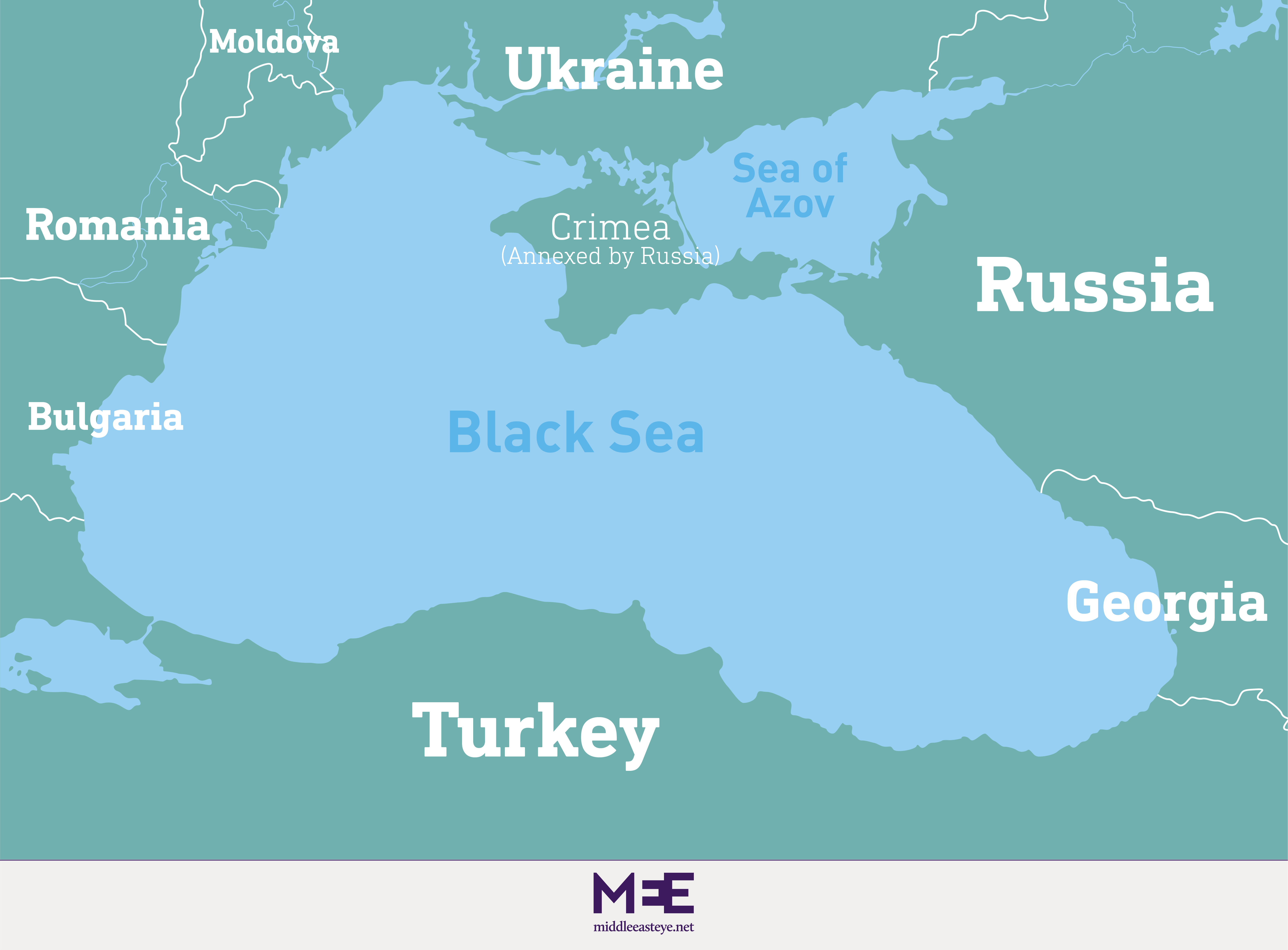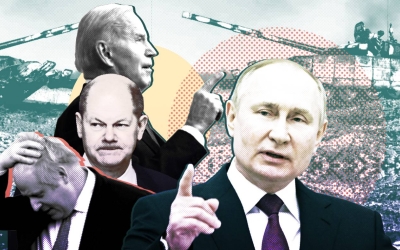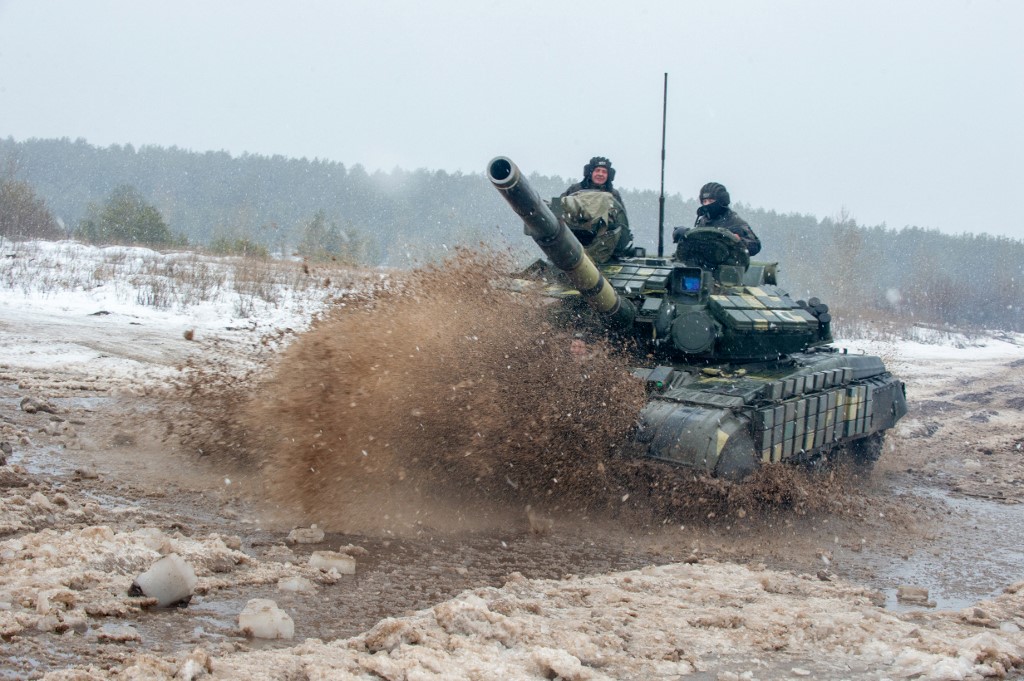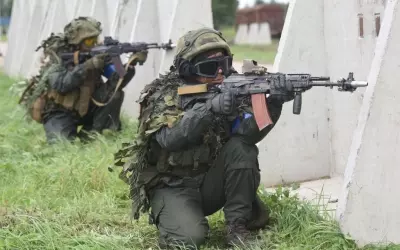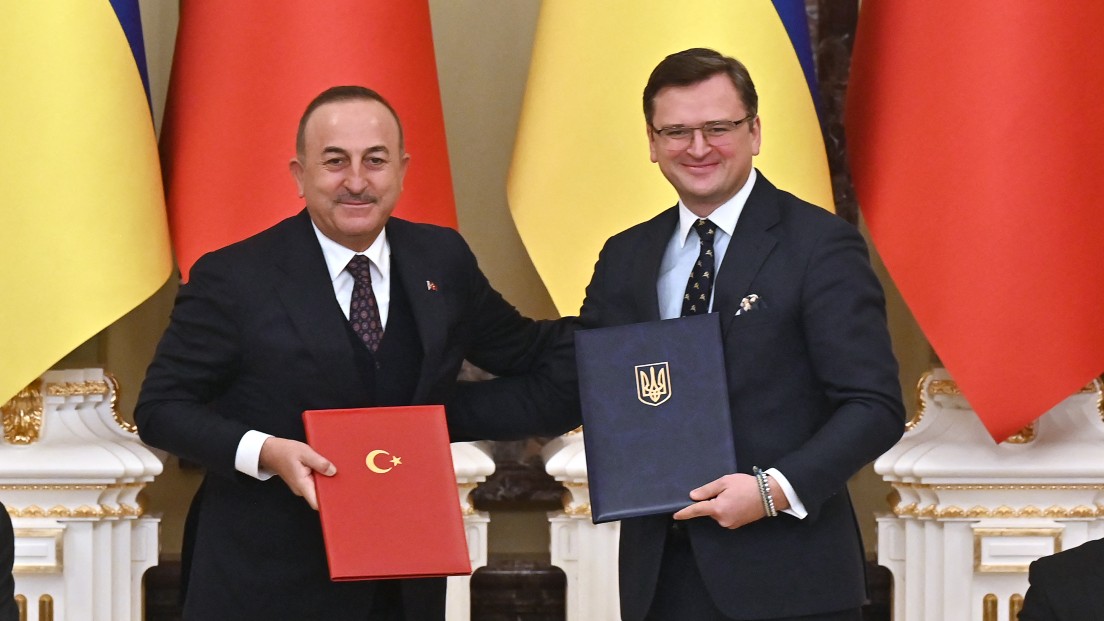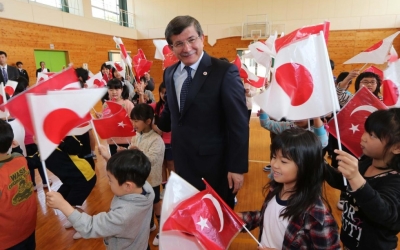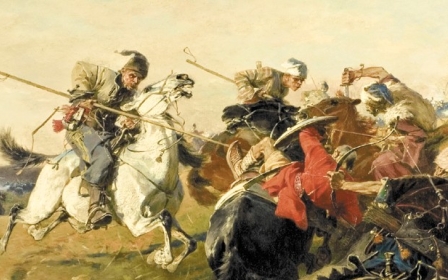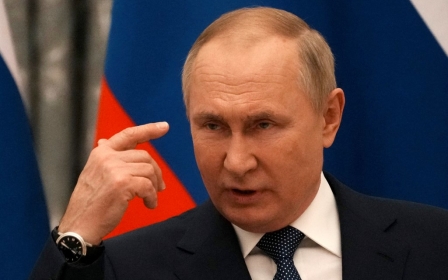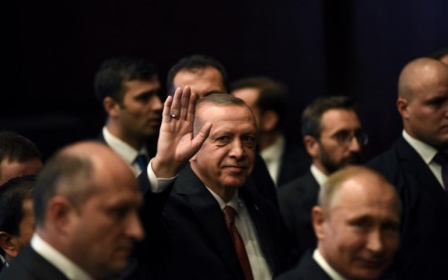Ukraine crisis: What is Turkey's stake in Russia-Nato rivalry?
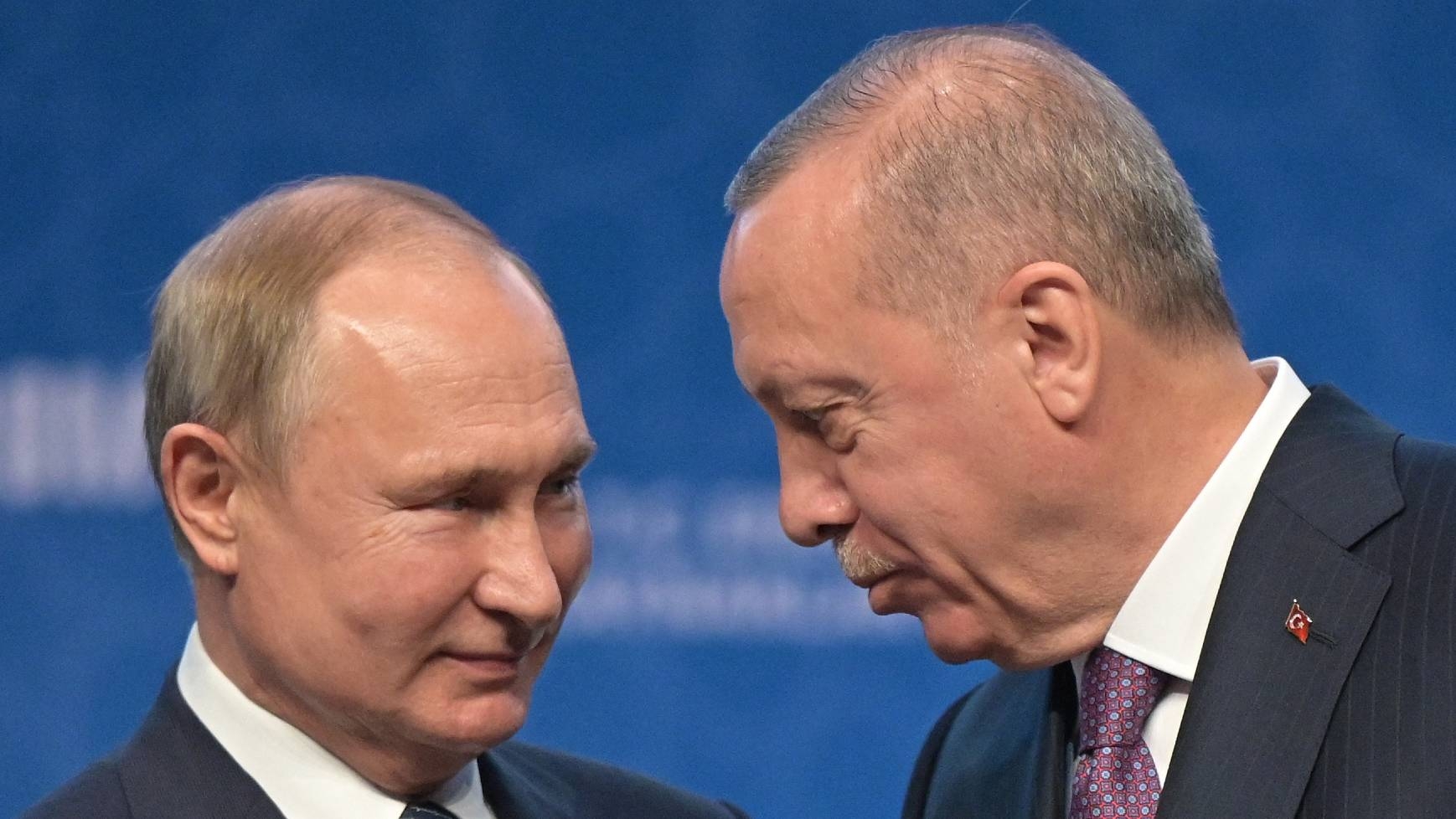
The Ukraine crisis poses two particularly uneasy questions for Turkey: How to uphold a power balance in the Black Sea. And how to manage its relations between Russia, Ukraine and the West.
So far, Ankara’s policy towards Moscow consists of both deterrence and dialogue. In regards to deterrence, Turkey is closer to the non-European Union members of Nato such as the United States and the United Kingdom.
Meanwhile, Turkey’s policy of dialogue with Russia is similar to that of EU members, most notably Germany.
However, while there is a certain degree of similarity between the stances of Turkey and some western countries in the current crisis, their convergence of interests has not yet resulted in any meaningful cooperation. In the short term, the parallel track of deterrence and dialogue still gives Turkey some leeway to continue its manoeuvring.
This makes it necessary to define the role of not only Russia, but also Turkey, in any new European security architecture. What is happening in Ukraine is in part a manifestation of a crisis concerning the current European security order - or lack thereof.
New MEE newsletter: Jerusalem Dispatch
Sign up to get the latest insights and analysis on Israel-Palestine, alongside Turkey Unpacked and other MEE newsletters
Despite being a Nato member, Ankara is an ideal partner for Moscow. For instance, Turkey purchased a Russian S-400 missile system and has agreed to build a pipeline bypassing Ukraine to deliver Russian gas to Europe’s south and southeast.
Ankara and Moscow have also worked out a delicate way of managing conflicts in the Middle East and the South Caucasus.
In Syria, apart from the Astana process with Iran, Turkey and Russia carry out joint military patrols. Meanwhile, in Azerbaijan, the two powers have established a joint centre for monitoring the ceasefire after the second Nagorno-Karabakh war.
On the other hand, despite its close relationship with Russia, Turkey is an exemplary Nato ally.
In fact, Turkey’s policy towards the Ukraine crisis is very much in line with the general Nato approach to Russia, namely deterrence and dialogue.
In beefing up Ukraine’s defence capabilities by providing Kyiv with military hardware, Turkey pursues a policy of deterrence towards Russia. Rhetorically, however, Ankara favours diplomacy over escalation.
Turkey thus appears eager to refrain from joining any attempt that seeks to slap Russia with heavy punitive sanctions or military confrontation. Indeed, Turkish President Recep Tayyip Erdogan has a number of times expressed his readiness to mediate between Russia and Ukraine.
The stakes are high for Turkey in the current crisis. It involves the security of its northern neighbour, Ukraine, the balance of power in the Black Sea region, its complex relations with Russia, and the future of the European security order.
Ukraine and the Black Sea
Turkey and Ukraine are, in the words of Ukrainian Foreign Minister Dmytro Kuleba, “truly friends in need”. Their mutual interest has proven to be most pressing in military-technical cooperation.
The acquisition of the S-400, military operations in Syria and direct military support of Azerbaijan during the latest Nagorno-Karabakh conflict have left Ankara with sanctions from its western allies.
As a result, Turkey faced severe gaps in military procurement and production. Most acute of these is the lack of engines for Turkey’s drones and fighter jets. It's a shortage Ankara counts on solving, inter alia, with the help of Ukrainian manufacturers.
Azerbaijan’s military victory in the Nagorno-Karabakh conflict in the autumn of 2020 boosted Ukraine’s interest in Turkish drones. Furthermore, to increase its naval capacity, Ukraine ordered two Turkish Ada-class corvettes.
Regarding Ukraine’s long-standing ambitions, in the joint declaration of April 2021 of the High-Level Strategic Council between Ukraine and Turkey, both underlined their “support to Ukraine’s Nato membership perspective in particular, in its intentions to be granted Membership Action Plan in the near future and aim to contribute to the interoperability of Ukraine’s Armed Forces with Allies”.
Ukraine is also an indispensable partner for Turkey in the Black Sea. More specifically, according to one Turkish official: “Ukraine is like a dam that stops further Russian influence and pressure in the region.” Among all their shared neighbourhoods, the Black Sea has been the most sensitive area in the history of Turkey-Russia relations.
The Crimean peninsula was a cornerstone of the Ottoman-Russian struggle for dominance in the region, with the Ottomans losing it to the Russian Empire in 1774. Later, the Soviet Union never felt at ease with Ankara’s control of the Turkish straits that connect the Black Sea with the Aegean and Mediterranean seas.
However, in the post-Cold War period, despite past grievances, Turkey and Russia have found a way to cooperate in the Black Sea, with Ankara trying to strike a delicate balance between Russia and its Nato allies.
Should hostilities prevail over dialogue in the current confrontational negotiations between Russia and the West, Turkey will find itself in a rather difficult position, and its Nato identity will come under pressure.
In the event of a Russian-Turkish confrontation, Syria is likely to be the most obvious arena for Moscow's retaliation
Back in 2014, Turkey declared Russia’s seizure of Crimea an illegal annexation, yet did not side with its western partners in the sanctions regime against Moscow. Turkey’s economic dependency on Russia in areas such as energy, tourism and trade played a significant role in this decision.
Since then, the Turkey-Russia relationship has become more interdependent, covering regional conflict management, nuclear technology and sophisticated weapons systems. If the balance in one area is disturbed, it may well spill over into other areas, including regional conflicts, especially in the Middle East and the South Caucasus.
In the event of a Russian-Turkish confrontation, Syria is likely to be the most obvious arena for Moscow’s retaliation, as it remains Ankara’s Achilles’ heel in its relations with Russia. By contrast, the post-Soviet space represents Russia’s sphere of relative vulnerability in its ties with Ankara.
While striving to deepen military-technical cooperation with Ukraine on the one hand and to limit its geopolitical exposure towards Russia in the Black Sea on the other, Turkey’s attempt to mediate between Russia and Ukraine is, however, unlikely to bear fruit.
Istanbul has already been considered as a possible alternative to Minsk for meetings of the Trilateral Contact Group on Ukraine, which includes representatives of Ukraine, Russia and the Organization for Security and Cooperation in Europe (OSCE).
However, the chances of Ukrainian and Russian presidents meeting in Turkey, as envisaged by Ankara, has little prospect for now, since Russia’s overall agenda in this crisis concerns not only Ukraine.
Rather, Moscow’s key worry is about how the West designs Europe's security architecture, namely against and in confrontation to Russia. By implication, Moscow is primarily concerned by the presence of Nato military infrastructure in Eastern Europe and a potential military confrontation over Crimea - both of which trump any alarm it may harbour over Turkish drones.
European security in transition
On 18 November 2021, Russian President Vladimir Putin stated in the expanded meeting of Russia’s foreign ministry board, that “our recent warnings have had a certain effect: tensions have arisen… It is important for them to remain in this state for as long as possible”. He urged Russia’s foreign ministry “to push for serious long-term guarantees that ensure Russia’s security”.
Putin’s demands on security guarantees include preventing Nato’s expansion eastward, ending its military cooperation with post-Soviet states and withdrawing nuclear weapons from Europe, as well as the absence of any strike systems that could potentially threaten Russia.
In brief, what Moscow wants is to change the current European security architecture. But why now?
From the Russian perspective, two decisions made in Washington last year have been significant. First is the withdrawal of Nato forces from Afghanistan in August 2021. Second is the announcement of the trilateral security deal between Australia, the UK and the US (Aukus) in September 2021.
Importantly, both - Nato withdrawal from Afghanistan and Aukus - have been interpreted in Ankara in a similar way, namely as signalling the lack of unity in the West, as well as Washington’s overall shift in geostrategic priorities.
More importantly for Ankara, Greece and France’s defence pact, which was signed in the autumn of 2021 and driven by an anti-Turkey disposition, illustrates the new parallel security partnerships emerging within western security architecture. Such fragmentation, especially within Nato, would further motivate Turkey to pursue bilateral security arrangements whenever necessary.
Nevertheless, Ankara seems to share the West’s vision of how to uphold the post-Cold War European security order, even though it is anxious about the ongoing debate on a new European security design, as Turkey’s role within that remains unclear.
So far, in the current Ukraine crisis, Turkey and other Nato members appear to be on the same page in opposing Russian revisionism. Ankara is aware of the fact that the cost of maintaining the post-Cold War geopolitical status quo is growing and growing.
However, the cost of geopolitical revisionism appears to be incomparably higher. Therefore, for Ankara, maintaining the status quo is not a matter of preference, but rather one of choosing the lesser evil.
The main problem, however, is that there is a lack of consensus within Nato on how to approach this conflict, which provides individual countries, including Turkey, with greater room for manoeuvre.
On the one hand, non-EU members of Nato, namely the US, the UK and Turkey, have adopted a much more active foreign policy towards Ukraine, particularly when it comes to providing Kyiv with military equipment - specifically armed drones, in the case of Ankara.
On the other hand, Turkey’s emphasis on dialogue over complete deterence echoes EU members of Nato, like Germany.
In this way, Turkey is actually decoupling itself from the US and the UK, as it does not want to risk crossing Russia’s red lines. If Russia did push its current escalation strategy, though, western powers would be more likely to converge, rather than engage in a grand bargain with Moscow over the future of European security.
Despite its clear interest in what is unravelling between Ukraine and Russia, Turkey has been conspicuously absent in both western consultations over the Ukraine crisis and the general debate on European security.
A video conference held by US President Joe Biden on Russia and Ukraine on 24 January included European Commission President Ursula von der Leyen, European Council President Charles Michel, French President Emmanuel Macron, Olaf Scholz of Germany, Italian Prime Minister Mario Draghi, Nato Secretary-General Jens Stoltenberg, Andrzej Duda of Poland and UK Prime Minister Boris Johnson. Erdogan was not present.
Outlook
If the Ukraine crisis continues in its current form, meaning that it does not result in an open conflict, then Turkey can benefit from it, by showcasing and selling further defence items to Ukraine and forging even closer relations with it, improving its relations with the West, and partially balancing its geopolitical vulnerability with regards to Russia in a tit-for-tat fashion.
Indeed, Turkey’s track record in recent years illustrates that by gaining a foothold in different conflict zones, it has acquired levers of influence with different actors. This logic appears in play in the Ukraine crisis.
The challenge for Ankara is that the difficulty of striking the right balance between deterrence and dialogue in its partnership with Moscow has increased tremendously. Thus far, both sides have illustrated a sufficient level of strategic flexibility and patience in preventing a rupture in their relations.
This distinction defines Moscow’s level of flexibility towards Turkey’s moves. Ukraine is a crisis of first-degree importance for Russia, as well as for Europe’s security. If the Ukraine crisis gets out of hand, then the strategic flexibility that has thus far sustained Turkish-Russian relations might reach its limits.
Turkey might then have to make choices that it has thus far strived to avoid. Ankara has pursued a geopolitical balancing act through its role in certain conflict zones such as Syria, Libya and Nagorno-Karabakh.
But for Moscow, there is a significant difference between crises in the Middle East and Africa and those in its immediate neighbourhood. Moscow looks at the former through the lenses of geopolitical power, influence and status projection. The post-Soviet space on the other hand, is seen as its backyard and is a question of national security.
Regarding Turkish-western relations, the current set of crises in Turkey’s surrounding regions opens up more ground between Ankara and Washington, but also with European partners.
This is the case in Ukraine, in Afghanistan and with regards to the Bosnian-Serb leader Milorad Dodik’s separatist agenda, which may prove to be highly explosive for Bosnia and Herzegovina.
The potential for cooperation between Turkey and the West in these areas is yet to be fully explored. Nevertheless, Turkey’s traditional policy of balancing Russia through its Nato geopolitical identity might become more accentuated going forward.
So, what does the Ukrainian crisis mean for Turkey in a changing European security order?
During the Clinton, Bush and Obama years (until 2014), Russian-western relations were largely discussed within the so-called framework of detente. As for Ankara, in the late 90s and during the first decade of the 2000s, Turkish-European relations revolved around whether or not Turkey would join the EU.
In spite of their own specific dynamics and particularities, both frameworks are no longer in place. Russian-western relations have long entered a post-detente phase, and Turkish-European relations are now in a post-accession to the EU era. However, current debates about the future of European security have not got to grips with this reality completely.
Unless these overall changes are taken into account, even if the Ukrainian crisis is brought under control temporarily, the question over Russia’s as well as Turkey’s place in the reconfiguration of European security will come to haunt the western defence establishments through other crises.
This article was originally published by the Centre for Applied Turkey Studies (CATS) at the German Institute for International and Security Affairs (SWP).
The views expressed in this article belong to the author and do not necessarily reflect the editorial policy of Middle East Eye.
Middle East Eye delivers independent and unrivalled coverage and analysis of the Middle East, North Africa and beyond. To learn more about republishing this content and the associated fees, please fill out this form. More about MEE can be found here.


